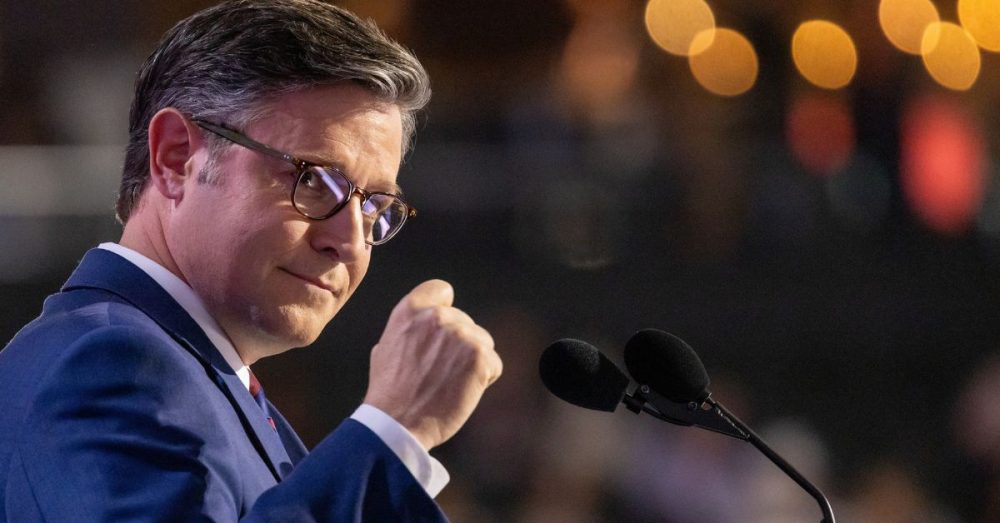He made it by a hair.
With no votes to spare, Louisiana Republican Mike Johnson was reelected as Speaker of the House for the 119th Congress — but only after a pair of Republicans switched their vote in favor of the incumbent before the gavel fell to finalize the decision.
Johnson faced significant internal challenges within his party, and the vote was closely watched as a measure of his leadership and the unity of the Republican majority. The final vote tally revealed the divisions within the GOP, with Johnson struggling to secure the necessary 218 votes for the position. The final vote was 218-215, with one Republican voting for an alternate GOP Speaker.
Initially, Johnson fell short of the required majority, as three Republican members withheld their support.
Representatives Keith Self of Texas and Ralph Norman of South Carolina eventually changed their votes in Johnson’s favor after last-minute negotiations and promises of greater involvement in key legislative priorities. Rep. Thomas Massie of Kentucky, however, remained steadfast in his dissent, casting a protest vote for Rep. Tom Emmer of Minnesota, signaling discontent among certain factions within the party.
Johnson’s slim victory highlights the fragile cohesion of the Republican majority in the House.
Self, of Collin County, took to X to explain his vote.
“My sole focus was advancing the Trump agenda,” he wrote. “To ensure this, I expressed concerns to Speaker Johnson about fiscal responsibility and holding the line on deficit spending—key priorities for my constituents.
“After receiving firm assurances from the Speaker, that Republicans in the House will have strong representation during the budget reconciliation process — a cornerstone of President Trump’s agenda — I changed my initial vote.
“I appreciate Speaker Johnson addressing these critical issues,” Self added. “Let’s get to work!”
RE: Speaker’s Vote
My sole focus was advancing the Trump agenda. To ensure this, I expressed concerns to Speaker Johnson about fiscal responsibility and holding the line on deficit spending—key priorities for my constituents.
After receiving firm assurances from the Speaker,…
— Rep. Keith Self (@RepKeithSelf) January 3, 2025
The Democratic caucus remained united, with all 215 members voting for their leader, Representative Hakeem Jeffries of New York. The close margin of Johnson’s victory underscores the potential difficulties he may face in managing his party, especially with the narrow majority and a vocal far-right faction pushing for more extreme positions on various issues.
Johnson’s re-election is widely viewed as a test of President-elect Donald Trump’s influence over congressional Republicans. Trump had publicly endorsed Johnson and called on GOP members to support him. Despite this backing, the initial dissent within the party indicates potential hurdles for advancing his legislative priorities in the upcoming Congress.
Johnson’s leadership will likely face scrutiny as he navigates competing demands within the party and addresses legislative responsibilities.
The House Speaker’s election is crucial for the functioning of Congress, as it allows the chamber to organize committees, swear in members, and proceed with its legislative agenda.
Shortly after receiving the Speaker’s gavel, Johnson swore in members to mark the start of the two-year 119th session of Congress.


